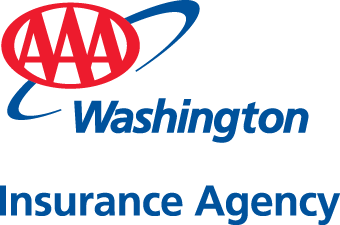Look Out for These Pitfalls When Buying Home Insurance
Your home may be the single most valuable asset you own, and you certainly want to protect it. To do so, it’s important to balance your desire to have an affordable home insurance policy with getting the right coverage. To shop for homeowners insurance with confidence, avoid the following common mistakes.
1. Overlooking the Details
Homeowners policies can be complex, and many details can be overlooked. Do you know what your homeowners policy covers? What are the exclusions? Are you covered for your dwelling as well as personal property? In addition, have you researched the insurance company and found how it handles claims? Be thorough in evaluating your policy, and don’t be afraid to ask your insurance agent questions, if there’s something you don’t understand.
2. Focusing on the Price
The instinct to pick based on price is understandable. After all, who doesn’t like to save a few dollars here and there? But it’s important to understand why a homeowners policy might be less expensive. Make sure that your policy isn’t cheaper because it doesn’t include important coverages. If you’re looking to lower your costs, it may be a better idea to get the coverage you need and reasonably increase your deductible instead. Skimping on coverage is a recipe for financial disaster when an actual disaster strikes.
3. Covering Just the Mortgage
Some people buy just enough insurance to cover their mortgage and no more. And that’s fine in theory, but remember that your lender is only concerned about protecting its asset — the house. Some lenders require only dwelling coverage, which only covers the physical structure of your home, while others add only minimum liability coverage. That won’t cover you in case your valuable personal property is stolen, and it may not be enough if medical bills or legal fees pile up.
4. Overlooking Earthquakes and Floods
Floods and earthquakes may appear to be common calamities, but many homeowners policies typically don’t cover them. If your home is located in a flood zone or near fault lines, verify that your home is covered. Timing is important, too. Flood insurance policies, for example, typically don’t kick in until 30 days from the purchase date unless the policy is part of a loan, then it is effective as of the closing date. When buying policies to supplement your existing home insurance, ask your agent when the coverage will start.
5. Forgetting About Mold
Mold is a common issue in the Pacific Northwest because of our humid weather and, like floods and earthquakes, it seems it should be covered by home insurance. Unfortunately, it’s often a little more complicated than that. Sometimes, mold damage can be covered, like if your water heater ruptures. Sometimes — like if damage just develops over time, thanks to a small leak — it won’t. And often, mold damage is expensive to fix, and insurance companies will cap the limit on mold remediation. If it’s a concern (like in an older house, for example), make sure you know if you would be covered and for how much.
6. Leaving Valuables Uncovered
If you have belongings that are particularly valuable, like jewelry, watches, antiques, art or collectibles, don’t assume that your standard policy will cover them completely. Most policies will limit the reimbursement on such expensive items, since they are high-value items that can be easily lost or stolen. If such items are worth more than what’s outlined in your policy, you can add additional endorsements to raise their coverage limits. This is also known as scheduled personal property coverage, and goes above and beyond to keep your expensive items financially covered.
7. Choosing Actual Cash Value
Here’s one that relates to your personal property coverage. The term “actual cash value” refers to the value of an item at the time of its loss. For example, an old television, computer or sofa may be worth much less than what you originally paid for it, so its actual cash value wouldn’t be enough to replace it with a new one. When choosing a policy, opt for reimbursement at “replacement cost,” which covers the cost of replacing personal property without deducting for depreciation.
8. Overlooking Disclosures
When shopping for homeowners insurance, you should inform your insurance agent of anything that might impact your coverage. For example, you should disclose having trampolines, pools or even certain breeds of dogs. Why? Because insurance companies consider trampolines and pools “attractive nuisances” — for example, fun-looking features that have an outsized risk of causing injury.
If you have one or more attractive nuisances on your property, let your insurance agent know because it will affect your coverage. Injuries caused by a pool or trampoline may be excluded, covered only if you install specific safety equipment, or fully covered — but will raise your premium costs.
Dogs technically are not considered attractive nuisances, but owning certain breeds that are more prone to causing injury (at least according to insurance companies) may affect your coverage in a similar way.
9. Not Shopping Around and Bundling
People comparison-shop when it comes to cereal, clothes and cars, so why wouldn’t you do the same with your insurance? Take the time to do your research, talk with your agent and find the right plan for you. In addition, insurance companies often offer discounts if you bundle your homeowners policy with your auto. You even can bundle health or life insurance (if you’re not getting them through work in the latter two cases). It may not always be the right decision to bundle, but in some cases, buying in a bundle can save you up to 25% for each policy.
– Written by Arnie Aurellano and Matt Forrest, last updated in December 2022.
–Top photo is from Vidi Studio/AdobeStock.

